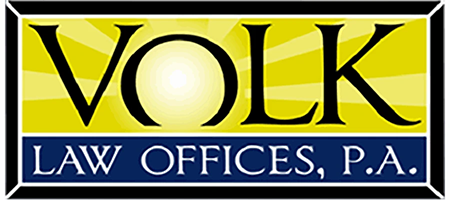Employer Rights Lawyer

Volk Law Offices specializes in Employer Rights. Employment Law is a general term for the area of law that encompasses all of the rights and obligations of employer and employee relationships. This includes current employees, former employees, as well as potential employees (applicants). Employee/employer relationships can be very complex and can involve a variety of different situations, such as discrimination, fair wages, workplace safety, wrongful termination, and more. There are many State and Federal statutes, judicial decisions, and administrative regulations that make up Employment law. More specific areas of Employment law include: Employee Retirement Income Security Act (ERISA); Americans with Disabilities Act (ADA); Fair Labor Standards Act; Family and Medical Leave Act; Pensions; Collective Bargaining; Unemployment Compensation; Employment Discrimination; Worker’s Compensation; and Workplace Safety.
Employees have certain basic rights in the workplace, regardless of station. Freedom from discrimination, fair compensation and right to privacy are a few of the basic rights that apply even before a job applicant is hired as an employee. The employer, or future employer, must not discriminate employees, or potential employees, based on their religion, race, gender, age or national origin at any point during the hiring process or for the term of employment. This also means that a potential employer may not ask job applicants certain personal questions, such as family-related, during or after the hiring process. Employers are also prohibited from seeking out certain other types of information regarding current or future employees. For example, employers are required by law to have written consent to perform a background or credit check, which means they cannot do either of those things without the current or future employee giving their written permission to do so.
Employees also have the right to privacy, even in the workplace. Specifics may vary from State to State, but generally this includes any employee’s personal possessions, such as locked or assigned personal storage lockers, purses, briefcases, and mail that is privately addressed to the employee only. An Employee might also have the right to privacy with phone calls and voicemail messages, but when it comes to internet usage and emails while using the employer’s computer system, the rights to privacy are more limited. This may also even apply to personal laptops and computers used while accessing the employers network or system.
A few additional important employee rights include: the right to fair wages for any and all work performed; the right to be free from retaliation from an employer if an employee files a complaint or claim against the employer (sometimes referred to as “whistleblower” rights); the right to a safe workplace – an environment free of potential safety hazards like toxic substances (like black mold or biohazards) or dangerous conditions (like improper safety gear or procedures); and last but not least, the right to be free from all types of harassment and discrimination.
If you need more information about your state’s specific employment laws, such as privacy rights or if you think you may have a case of discrimination, Contact Us today! Our employer and employee rights attorneys will inform you of your rights and let you know your options.
The matters discussed here are general in nature and are not to be relied upon as legal advice. Every specific legal matter requires specific legal attention. The law is constantly changing and matters discussed today may not be the same tomorrow. Legal matters are also subject to different interpretations by attorneys, judges, jurors and scholars. No attorney-client relationship is intended or created as a result of matters discussed here. You should consult counsel of your choice if you have any dealings in these areas of the law. Volk Law Offices, P.A. and its attorneys make no representations or warranties with respect to the accuracy or completeness of the matters addressed.
